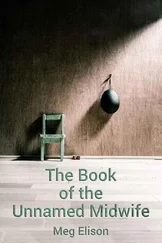“Do we really know,” he said, “can we say with absolute certainty that that man is the one who killed her?”
“You had him and you let him go. He was right there in front of you and you let him go.”
“At the time, R.H., I didn’t know—”
“The one guy who could have exonerated me,” he said. “You let him walk away.”
“I think maybe you’re putting too much faith in—”
“You should have grabbed him,” he interrupted with a rising voice. “Why didn’t you grab the son of a bitch? He’s the only one who knows who did it. He did it! And you let him slip through your goddamn fingers! Why couldn’t you grab him?”
R.H. didn’t seem to give a damn for his confession of lies and failures. He blamed Tim for one thing and one thing only. Now it was like an obsession that he had been waiting years to unleash. Tim could hear him just as well through the glass as through the phone.
“Answer me!”
“I think you might be overplaying that man’s role. No one knows for certain that he killed her.”
“He had the murder weapon.”
“It may have been the murder weapon.”
“May have been? May have been?”
His loud voice attracted the attention of the guard standing against the wall. “How could you let him go? How could you walk away? He was my one hope! And you let him go!” He stood up. He screamed into the phone, “You let him go!” He began to beat the glass with the phone. “You let him go!” The guard rushed over. Thump! “You let him go!” Thump thump! The guard grabbed him from behind and lifted him into the air. The chair went flying as the old man kicked out his legs. One of the kicks landed on the glass. He hung on to the phone as long as he could, until the cord snapped and he and the guard went sailing. “You had him!” he cried through the partition. He threw the phone at the glass as the guard dragged him out of the room. His cries grew more muffled. “You had him! You had him! You had him! You had him!”
When did she go from someone who liked a glass of wine with dinner to the woman with the lights blazing at four a.m.? Trying to do the bills totally blasted. Her nice quiet life had been stalked from behind by alcohol. Who would have guessed? If you were predisposed, or had the gene, or lacked some inner resource, you had to be vigilant or you went down. Four in the morning and she was digging through her purse for a Newport. What was that? She was not that woman. But she was. Oldest story there is, total cliché. Except when it’s your life. When it’s your life it’s not a cliché, it’s real life, real everyday life, just drunk. It came up from behind her and knocked her to her knees. She never expected it, but that’s what happened, it came up from behind. Being a drunk was simple. It was an accident you caught sight of in the rearview mirror, and the car you saw was your own. The intersection where the accident happened, it was the very one you were approaching. When you turned from the mirror to the road in front of you — BAM! you got hit again. And then, once again, you were looking back at it. She was supposed to be on guard her whole life against alcohol? Who knew.
But it wasn’t an accident. She was making choices, even if she didn’t know it.
She called Becka during his time in the room and said, “You have to come home now and watch your father. It’s your turn, it’s time.” Like he was a baby and not her husband. Like Becka had made the vows and not her. Becka didn’t understand. “Why, do you have plans?” She had no plans. She hadn’t had plans for months. She hadn’t seen a movie, she hadn’t talked to friends, she hadn’t been to the dentist. She wasn’t going outside to collect the mail. Becka got the mail when she came home. Becka was the one who had to drag her by the hair to see Dr. Bagdasarian. Jane kept thinking, when did she become the parent? Becka told her to put the wine down and get in the car. She had called from school to make the appointment. The doctor took one look at Jane and said she was in the dictionary under depressed and wrote her a prescription. She didn’t need a prescription, she needed a life. She needed to start over again with new teeth and fresh underwear. But of course she took the prescription. If it came from a pharmacy and modified behavior, there had to be some merit to it.
But a month went by and she was still calling Becka. “You have to come home. I have to drive.” And Becka said, “Drive?” “Yes, drive.” “Drive where?” Drive where — what sort of question was that? When you’re driving just to drive you don’t know where. You’re just driving. She shrieked that into the phone. If she shrieked, if she called late at night, if she cried, if she made several calls in the same hour, Becka came home and she was able to drive. In the magazines and the newspapers, those people, they had such inner resources. Meeting adversity head-on and all that.
Her first time driving, she made it to Stamford, Connecticut. That wasn’t even an hour away. She thought she’d stop at the Bennigan’s for lunch and then she’d keep driving north. She walked in around lunchtime and the tables in the dining room were full so she took a seat at the bar. She was just going to fuel up before hitting the road again. But she got drunk instead. She was at the bar throughout the day. The daytime bartender switched with the nighttime bartender and she was still there. She finally asked the nighttime bartender to call her a cab. She was drunk and tired and didn’t want to have to walk out to the parking lot. She thought there might be some way to convince someone to carry her. But when the cabbie showed up and the bartender said, “Your cab’s here,” she got off the barstool and grabbed her purse and walked out on her own. She got inside the cab and didn’t know what to say. “How about a hotel?” she finally said. The cabbie drove her to a Holiday Inn and helped her inside. He helped her check in and then he helped her to her room. She woke up around noon not knowing where she was. She woke up, she knew it was a hotel room, but she didn’t know in what city. She walked down to the Denny’s for some coffee and when the coffee started to take effect she remembered the Bennigan’s. She went back to the Holiday Inn and asked for a cab. It was the same cabbie from the night before. She didn’t remember him. He said to her, “Back to the Bennigan’s?” She asked if he ever took a break from driving and he told her that he was doing twenty hours a day so he could pay to pull a tooth.
He drove her back to the Bennigan’s. They drove through the lot but she couldn’t find her car. The cabbie called a friend of his at the municipality and sure enough her car had been towed. Cars weren’t allowed to stay overnight in that lot. The cabbie offered to help, but she thanked him and paid him and went inside to think. It was lunchtime. She ordered a drink and then she ordered a second one. The daytime bartender gave way to the nighttime bartender, and she was drunk a second day at the Bennigan’s in Stamford. She was there another five or six hours until Todd called her a cab. Todd was the nighttime bartender. When the cab came, it was the same driver. She couldn’t believe it. She drank through his night. He was getting at most three hours of sleep a day, trying to earn enough to pull his tooth. But was he fleeing his responsibilities? Was he getting drunk in her neighborhood Bennigan’s? People have such inner resources. He said, “Back to the Holiday Inn?” She went back to the Holiday Inn. Same woman at the check-in counter, same room from the night before. The next morning it was the same cabbie. “Back to the Bennigan’s?”
Читать дальше












